After undergoing surgery, it's essential to navigate your recovery with the right information and guidance. Post-operative care plays a pivotal role in ensuring a smooth healing process, and having clear instructions can make all the difference. From managing pain to recognizing signs of complications, understanding each step will empower you on your journey to recovery. So, let's dive into the essential post-operative care instructions you need to knowâyour path to healing starts here!
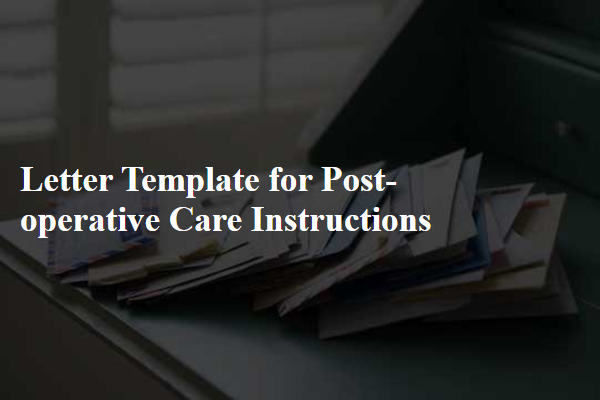
Patient Identification and Procedure Details
Following surgical procedures, comprehensive post-operative care is critical for recovery. Surgical sites require monitoring for signs of infection or excessive swelling within the first 48 hours. Patients must adhere to prescribed medication schedules, including antibiotics (typically lasting 5 to 7 days) and pain management medications. Incision care guidelines specify keeping the area clean and dry, changing dressings as directed, and avoiding strenuous activities for at least two weeks post-surgery. Typically, follow-up appointments (scheduled 1 week after surgery) are necessary for evaluating healing progress and potential suture removal. Patients should also be aware of warning signs, such as fever exceeding 101 degrees Fahrenheit, unusual discharge from the surgical site, or increased pain not relieved by medication. Proper hydration, a balanced diet rich in protein and vitamins, and regular gentle activity, like short walks, can significantly enhance recovery outcomes.
Medication and Pain Management
Post-operative care plays a crucial role in recovery, particularly regarding medication and pain management. Patients should follow the prescribed medication regimen, including analgesics, which might include opioids (like Oxycodone) to manage pain levels, as well as non-steroidal anti-inflammatory drugs (NSAIDs) such as Ibuprofen. Timing is key; patients may need to take medications at specific intervals, often every 4 to 6 hours, to maintain consistent pain relief. Monitoring for side effects is essential; common side effects could include nausea or constipation. In certain cases, patients might require laxatives to counteract these effects. Appropriate hydration and nutrition should also be maintained to aid recovery. Any signs of excessive pain, such as a pain level consistently above 7 on a scale of 1 to 10, should prompt immediate contact with healthcare providers to reassess the pain management plan.
Wound Care and Hygiene
Post-operative care is crucial for optimal recovery following surgical procedures. Proper wound care requires gentle cleansing of the incision site with saline solution (sodium chloride) two times daily to remove any debris and reduce infection risk. Keeping the area dry is essential; patients should avoid submerging the wound in water, such as bath tubs or swimming pools, for at least two weeks post-surgery. Additional hygiene practices include washing hands thoroughly with soap and water before touching the wound or changing dressings. Signs of infection, such as increased redness, swelling, or discharge, should prompt immediate consultation with healthcare providers. Routine follow-up appointments, ideally within seven to ten days after surgery, are important for monitoring healing progress and ensuring no complications arise.
Activity Restrictions and Physical Therapy
Post-operative care is essential for optimal recovery after surgical procedures. Specific activity restrictions, typically lasting from two to six weeks, may include avoiding heavy lifting (over 10 pounds), strenuous exercise, and high-impact sports to prevent complications such as bleeding or reopening of incisions. For instance, patients recovering from knee surgery may need to engage in gentle range-of-motion exercises, as guided by healthcare professionals. Physical therapy appointments, often scheduled weekly, are crucial for regaining strength and improving mobility. Therapy may incorporate techniques such as ultrasound therapy and resistance training, tailored to individual progress. The use of ice packs for swelling and pain management is recommended, emphasizing the significance of following prescribed instructions for achieving a successful rehabilitation outcome.
Emergency Contact and Follow-up Appointments
Post-operative care instructions play a crucial role in a patient's recovery journey following surgery. Patients should maintain a list of emergency contact numbers, including the primary surgeon's office, local emergency services, and a trusted family member or friend. Follow-up appointments are essential for monitoring healing progress, typically scheduled within a week to ten days after surgery, depending on the procedure's complexity. The care team, including nurses and physicians, will provide personalized guidance on signs of complications such as excessive swelling or unexpected pain. Adhering to prescribed medications and physical activities is critical to prevent infection and ensure optimal recovery.

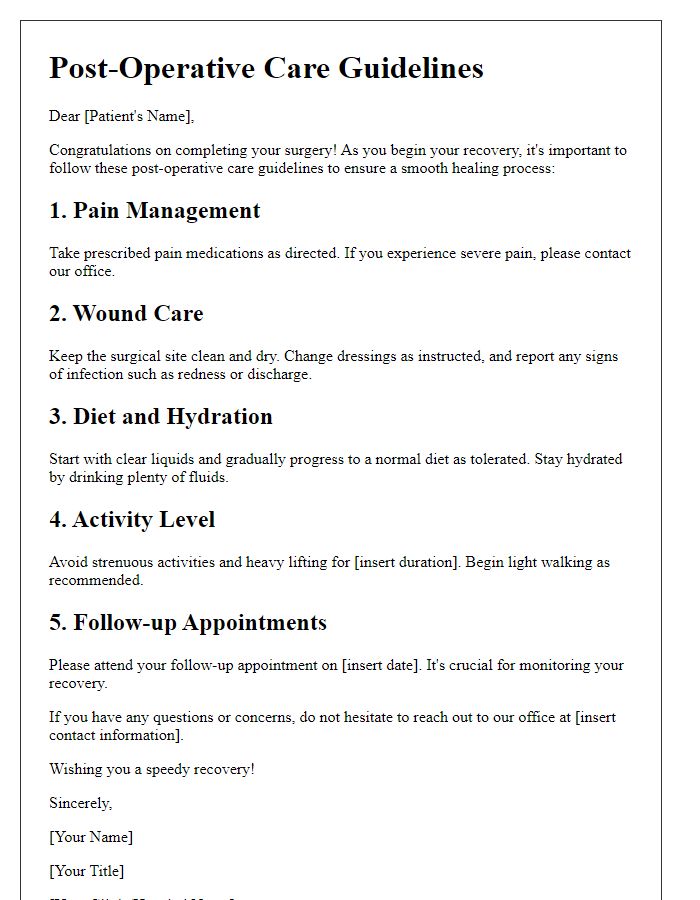
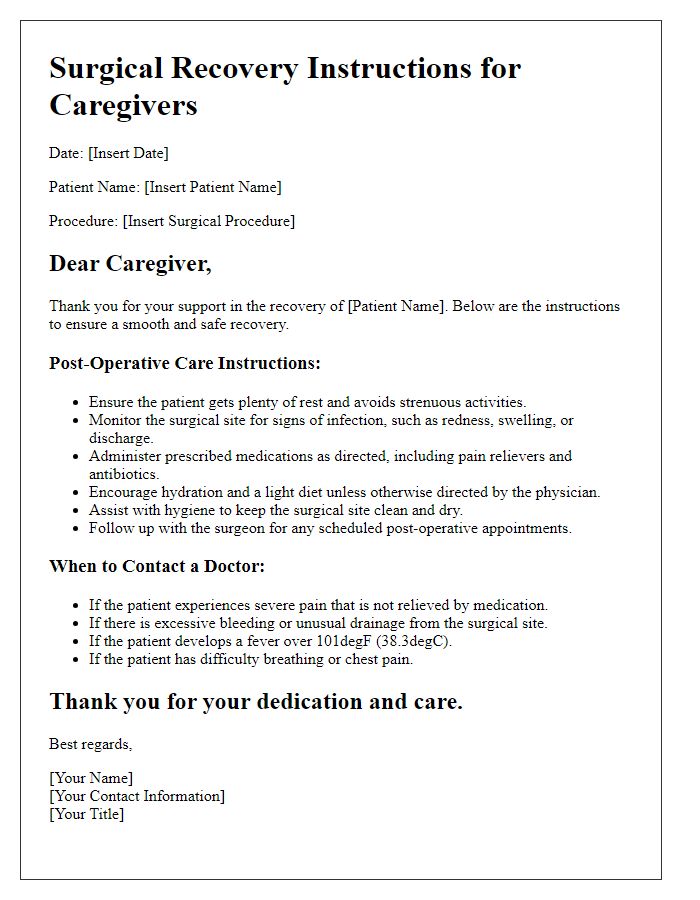
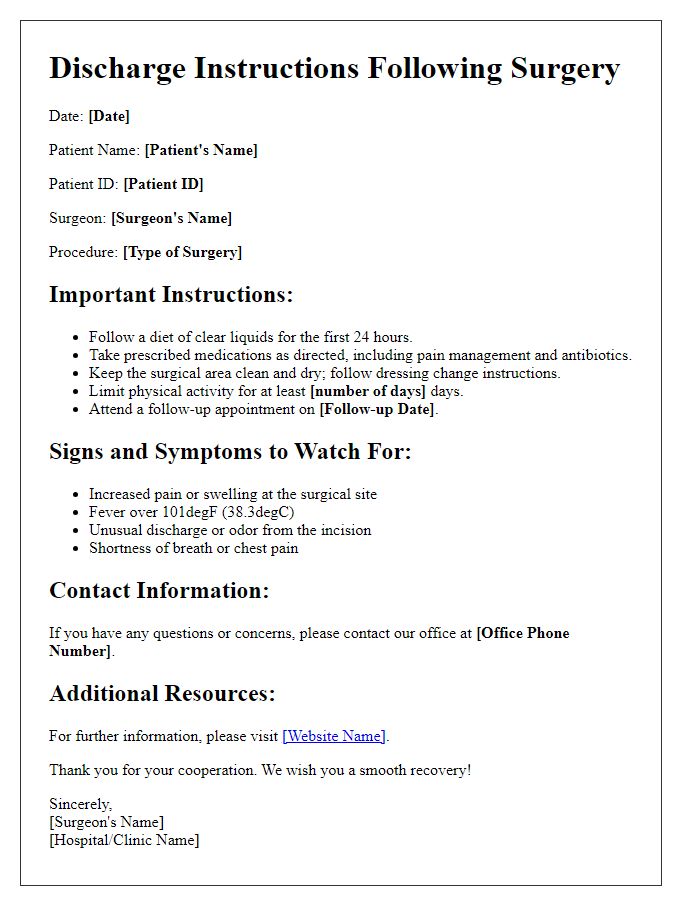
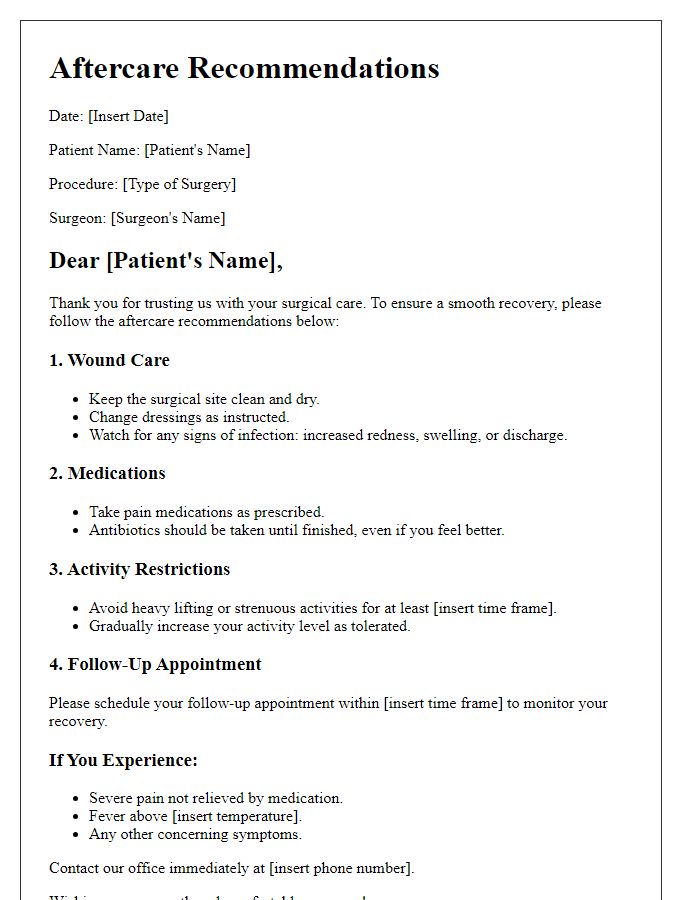
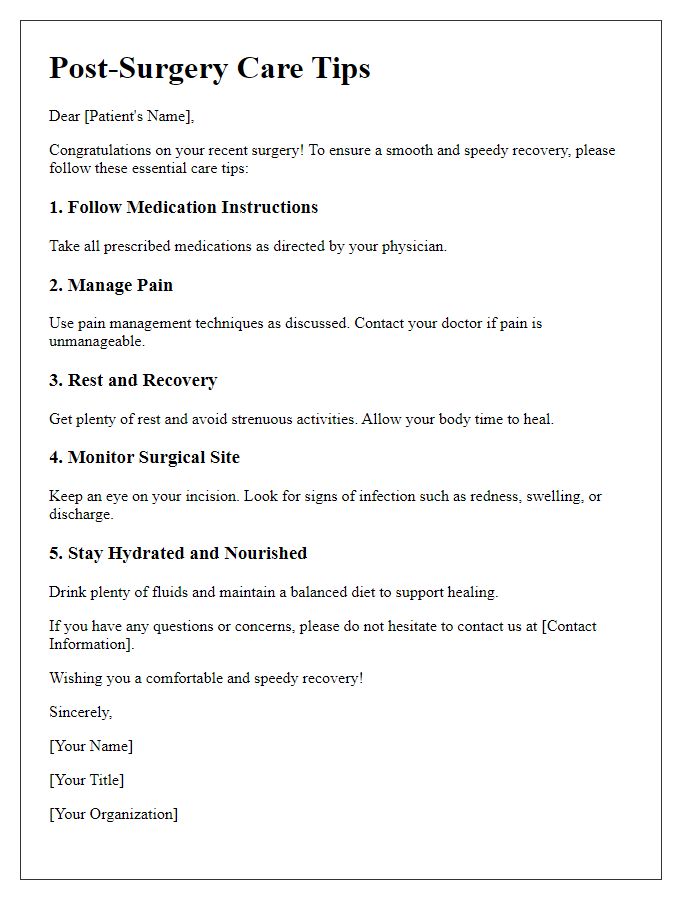
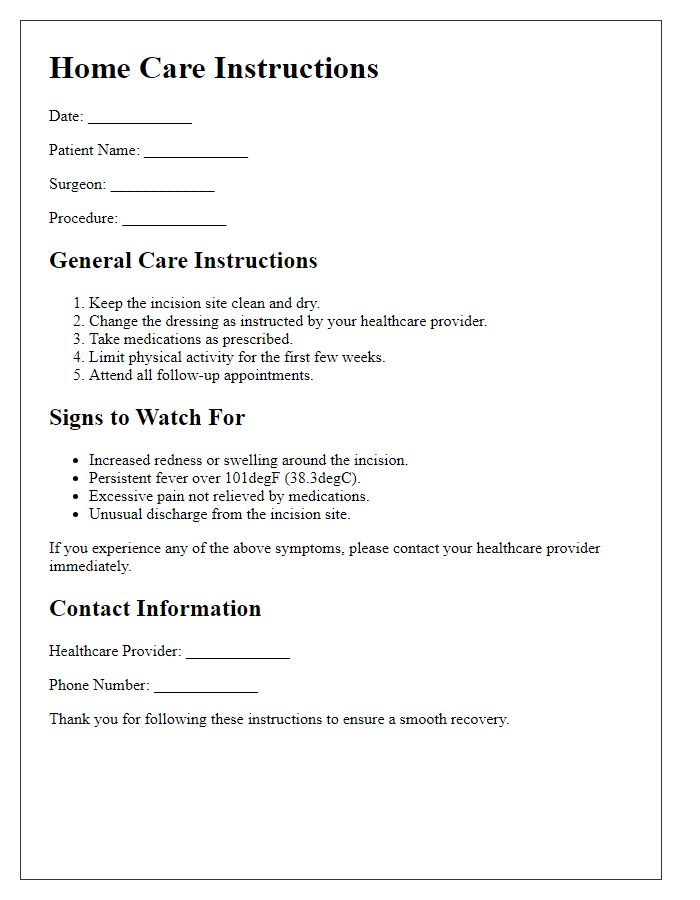
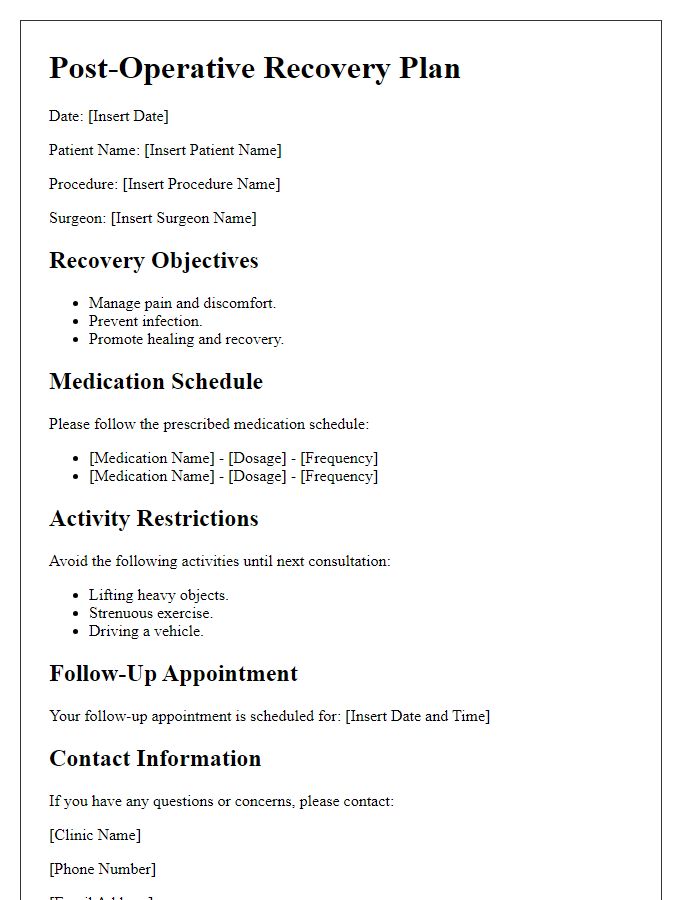
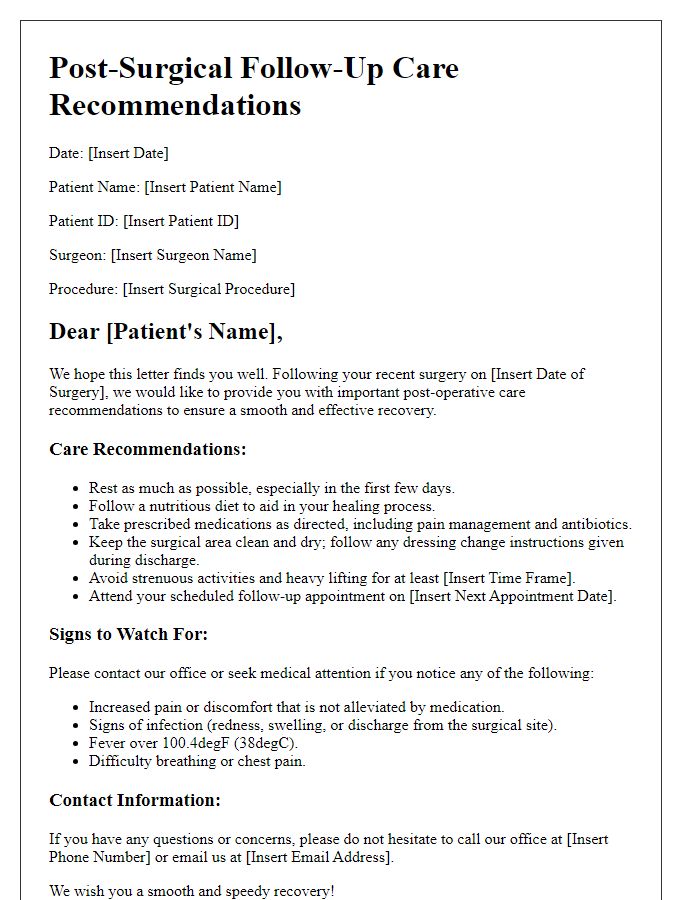
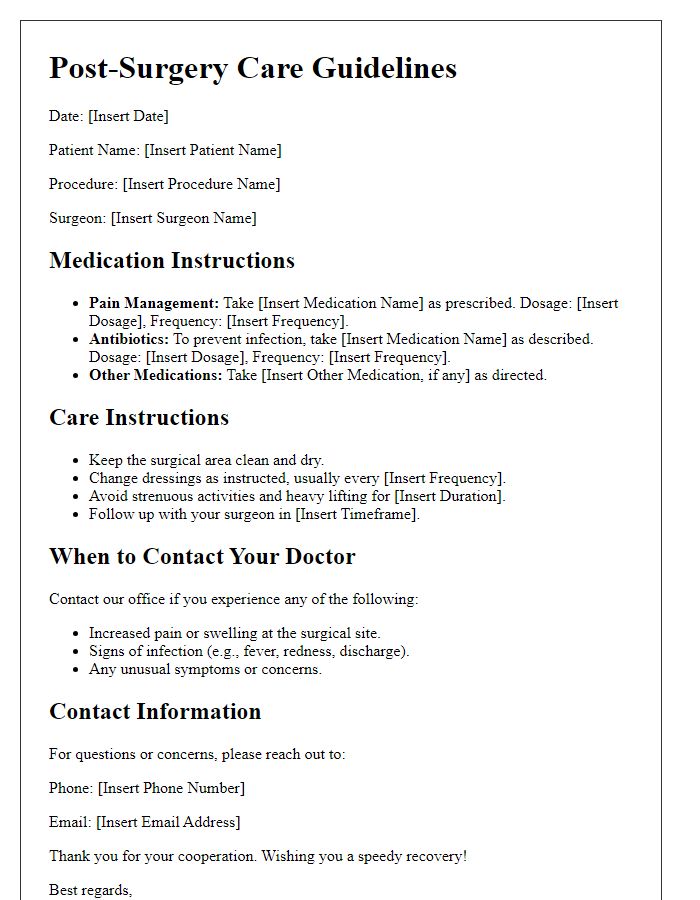
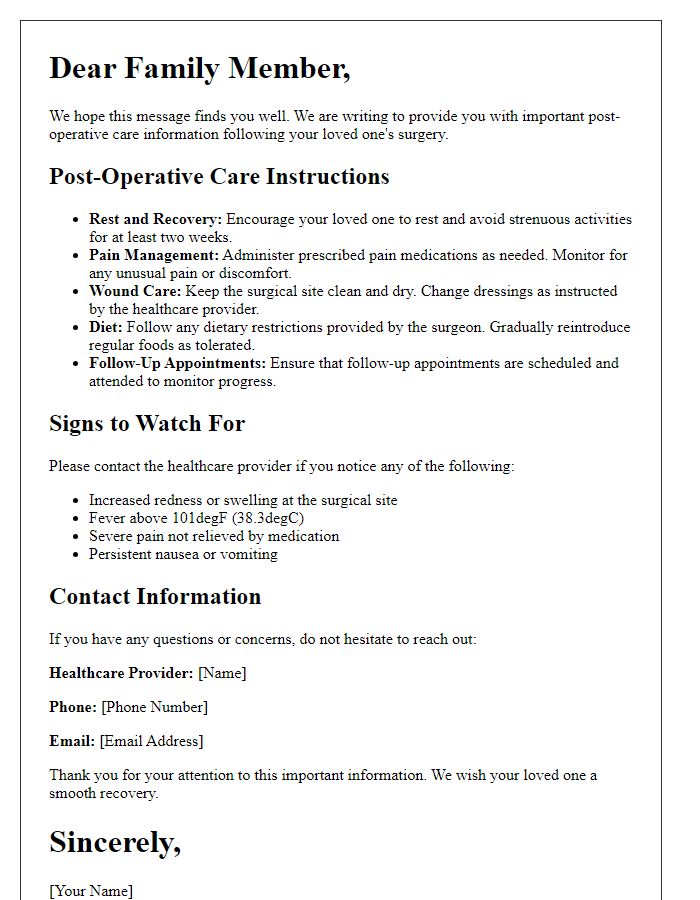


Comments